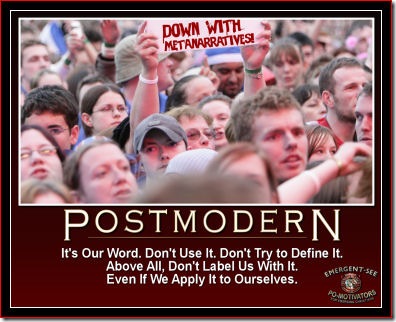 Interesting article from Jonathan D. Fitzgerald at Patheos. He notes that research shows that conservative denominations are growing the fastest.
Interesting article from Jonathan D. Fitzgerald at Patheos. He notes that research shows that conservative denominations are growing the fastest.
The spread of conservative Christianity is not a ratification of Mohler’s [the president of the Southern Baptist convention] brand of fundamentalism because it is more truthful, but because it does what humans want religion to do: it provides hard and fast answers to the questions we ask. It dictates rules and allows us to bypass the uncomfortable mystery inherent in trying to understand supernatural things. …
Just because something is growing doesn’t mean it’s healthy. …
Can we return the mystery to Christianity, can we celebrate the ambiguities, and work together to forward the Gospel despite differences in theology? Or, will we continue to export a rigid brand of Christianity that answers humanity’s modern desire for certainty and our eternal desire for order, but looks more and more like American culture, and less like the culture of the early church? …
It may be more difficult to offer the truth without the comforts associated with rigid laws, but, I am suggesting, it is something more akin to the good news that Jesus charged us with sharing.
 Hmm … I have to agree that growth does not prove the excellence of anyone’s theology. There are plenty of movements that are growing rapidly despite offering very poor theology.
Hmm … I have to agree that growth does not prove the excellence of anyone’s theology. There are plenty of movements that are growing rapidly despite offering very poor theology.
And I also agree that legalism offers rules and rituals that provide comfort in entirely the wrong way — “If I sing without an instrument, God will save me.” But that’s hardly the Baptist position.
Are there ambiguities in the scriptures? Of course. Not everything is made plain. But does that mean it’s entirely ambiguous? Or that we should celebrate a failure a grow? And may ambiguity prevent us from dealing with some of the hard teachings? I think not.
So I’m wondering what you think. Is Fitzgerald fair in his treatment of the Baptists?
 From Todd Rhoades at Monday Morning Insight —
From Todd Rhoades at Monday Morning Insight —
 If my employer provided me a house, I’d have to pay income tax on the value of the free rent. There’s an exception if living in the housing is required to do the job — such as being a house parent in an orphanage. And there’s
If my employer provided me a house, I’d have to pay income tax on the value of the free rent. There’s an exception if living in the housing is required to do the job — such as being a house parent in an orphanage. And there’s 

 Second, as these and many other passages teach, God’s peace, righteousness, and justice will prevail in this new Kingdom. “Justice” and “righteousness” include the teachings of the Torah that Kingdom’s citizens will care for the widows, orphans, and sojourners, all of whom will be provided just laws and just courts by the King.
Second, as these and many other passages teach, God’s peace, righteousness, and justice will prevail in this new Kingdom. “Justice” and “righteousness” include the teachings of the Torah that Kingdom’s citizens will care for the widows, orphans, and sojourners, all of whom will be provided just laws and just courts by the King.
 Hmm … I have to agree that growth does not prove the excellence of anyone’s theology. There are plenty of movements that are growing rapidly despite offering very poor theology.
Hmm … I have to agree that growth does not prove the excellence of anyone’s theology. There are plenty of movements that are growing rapidly despite offering very poor theology.



